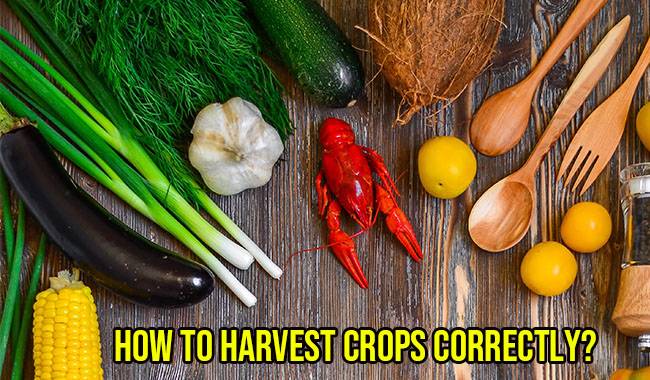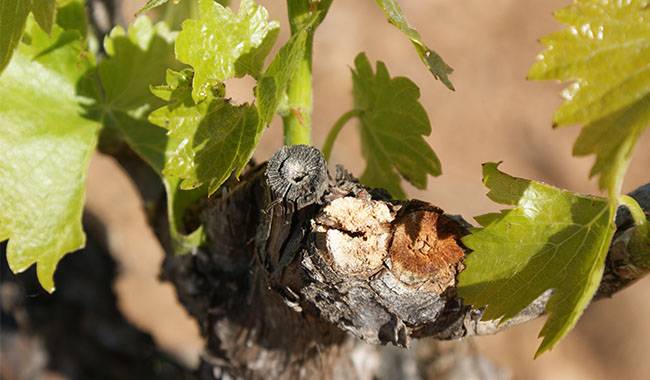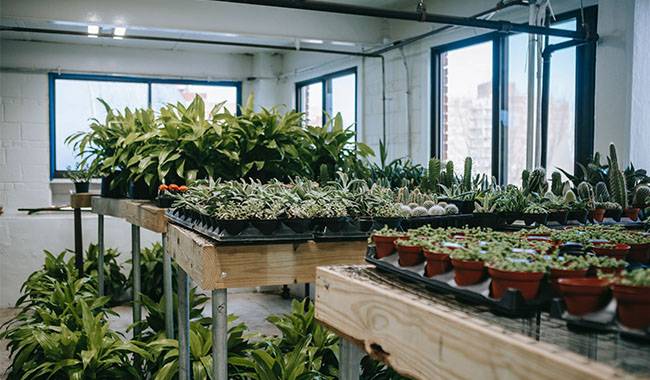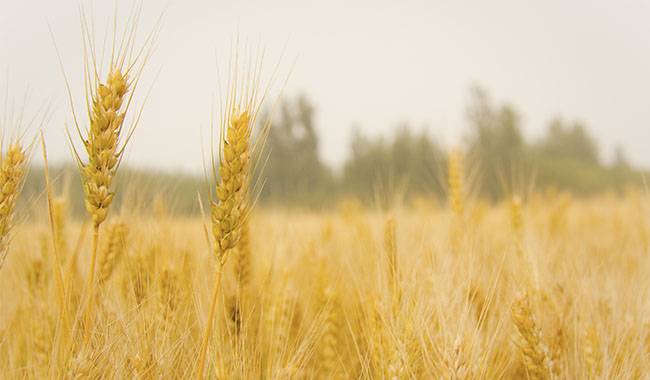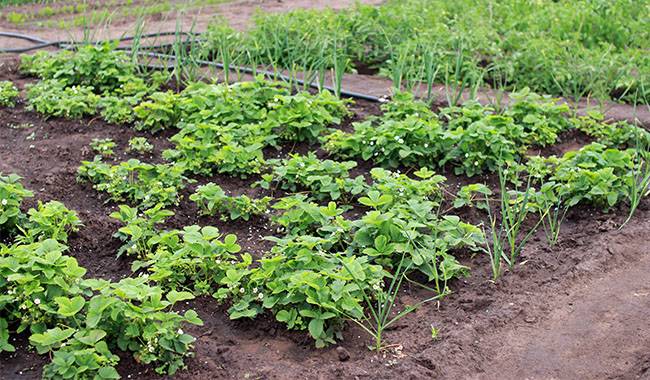
Organic farming is now evolving from a little-known trend to a full-fledged movement of conscious, sustainable, and responsible gardening. This approach requires living in harmony with nature, rather than disregarding it, enabling you to conserve energy and resources and enjoy every minute spent on your land.
And grow high-quality, eco-friendly crops in your garden without the hassle of forgetting about watering, weeding, or even digging up the soil. The smart and clever way, the basis of natural farming to turn your own garden and vegetable garden ideas into.
ORGANIC FARMING: A CAREFREE GARDEN AND VEGETABLE GARDEN FOR THE LAZY
Every gardener dreams of a bountiful harvest without any extra effort. And the concept of the “lazy” garden is gaining ground in our daily lives. But for many, the principle of simplifying the process of cultivating your own harvest is itself something akin to science fiction, if not a mystery.
A carefree vegetable garden that requires no weeding, no watering, not even digging – this is not a myth or an impossible dream, but a reality. But to obtain this result, one must not only change methods drastically but also rethink the concept of traditional farming methods.
The principles of organizing your own garden and vegetable garden are often referred to as “lazy gardening” and center on responsible practices and respect for nature. And make the mistake of thinking that you can do nothing but get a great result, do not: not lazy, but reasonably lazy gardeners achieve success.
Knowing how to allocate resources wisely, how to minimize the need for time-consuming work, and how to effectively use the full size of your own small plot of land is not only a reality but the only right way to go about it.
And organic farming is not just for those who don’t have the time or energy to work “normally” in the garden. It is a complete philosophy and a special approach to gardening and growing that can be used by everyone, regardless of age, knowledge, and experience, for those who want to live and create with nature, not just use and deplete its resources.
Putting the main task not to get the maximum benefit from the soil, but not to harm nature, organic agriculture uses the natural mechanisms of soil fertility recovery and carefully analyzes its renewal laws.
And the understanding of the soil not only as a resource, an environment in which plants grow but as a living organism with a unique ecosystem in which any intervention leads to irreversible imbalances, fundamentally changes the understanding of the process of cultivating plants.
By following the laws of nature itself, not interfering with or destroying it, but simply helping it to the best of our ability and knowledge, organic farming teaches us to.
- To appreciate what you do.
- To allocate our resources and time.
- Not to waste time on unnecessary (and often destructive) procedures.
- Again enjoy the time spent on his plot.
After all, in order to relax on the mountain, rather than working every moment, you also need to learn. And sometimes it’s harder to change the way you think and perceive than it is to learn new techniques.
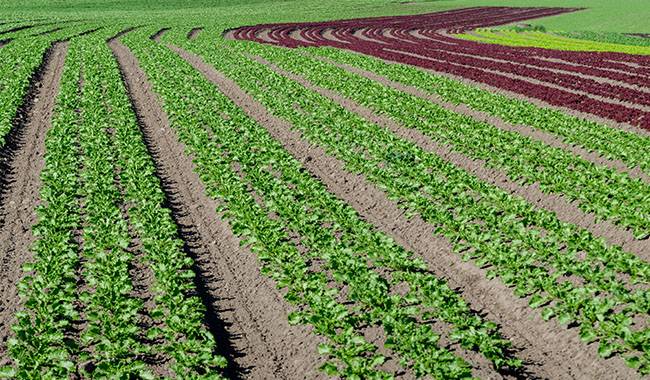
THE THREE MAIN “NO’S” OF NATURAL ORGANIC FARMING – THE BASIS FOR AN EASY VEGETABLE GARDEN
Organic farming eliminates all the most difficult and time-consuming parts of classical gardening controlling unwanted plants, regular watering, and soil tillage.
Organic farming is based on three principles.
Principle 1. Don’t dig!
Organic farming requires preserving the natural soil environment simply by maintaining air and water permeability, not harming the native inhabitants of the soil, using natural means for regeneration and restoration, and creating a high-quality humus layer, rather than overplanting and actively deep tilling.
Principle 2. No weeding!
It is best not to fight weeds by the least effective method – complete wedding – but to suppress them systematically, considering the “main enemy” of any large estate owner as one of its valuable natural resources.
Principle 3: Don’t water!
Taking care of the most labor- and resource-intensive part of your garden and vegetable garden is considered inevitable. However, you can forget about watering if you rethink your methods and leave the water in the soil instead of enriching it with water.
Of course, organic farming doesn’t mean just giving up watering and fertilizing. In everything – from pest control measures to fertilizer issues – you need to “listen to nature” and rely on its protective and self-regulating mechanisms, which could not be better invented. A carefree organic garden is a healthy garden with strong, resilient plants.
And for the selection of seedlings, seeds, and tubers, the selection of plant communities, the observance of crop rotations and rotations, and the sowing or planting, natural agriculture has its own approach that is individualized and respects the specificity of the crop itself.
THE “OLD FORGOTTEN” NATURAL FARMING
Unfortunately, there is still very little known about natural farming in American agriculture. We often present it as a new or even innovative or alternative method. While the essence of natural farming is not to invent new technologies, it is to return to our roots, to focus on and respect nature and its laws, as we all know hundreds of years ago.
As technology has advanced, the ability to grow crops in harmony with nature has given way, in a few short centuries, to new methods that cause catastrophic damage and depletion of the soil. For decades, “scientific” but unnatural farming methods have been dominated and grown by agricultural scientists, while the original, centuries-old traditions and practices of creating vegetable gardens have virtually disappeared.
Advocates of conventional farming techniques are convinced that organic farming methods are of little use to private gardens and yards, requiring significant resources and costs. But in reality, the opposite is true: even on his 6-acre plot, you can be sure that organic farming opens up gardening from a whole new side.
On a small plot of land, it’s much easier:
- To understand the mechanisms of nature and to work in concert with it.
- Move from exploiting the soil to protecting and improving it.
- Start to use the area wisely and get bigger and better yields, even in small gardens, without the hassle of dealing with these problems.
The fascinating process of learning the laws of nature and starting to work according to them opens the way to new ways of responsible farming and organizing your own gardens and vegetable gardens without any hassle.
GALINA KIZIMA – A GUIDE TO THE WORLD OF ORGANIC FARMING
Galina Kizima is the leading expert in this field and has been applying the laws and methods of organic farming for more than 55 years. The author of more than one hundred books, manuals, and articles on smart and successful gardening and gardening, Galina Kizima is a regular guest on TV and radio and a well-known practitioner who modestly calls herself an amateur gardener. Even her opponents take her advice.
In more than half a century of practice, Galina Kizima has successfully proven that the three main “no’s” of successful farming are not only effective but are the basis for success in finding personal ways, saving strength, resources, and time, achieving desired results and deriving pleasure from the business she loves.
In his experience, from the usual conventional methods to careful “observation” of nature and awareness of how to change the activity on the plot, the owner began the long journey of getting to know and experimenting with organic farming and understanding its fundamentals.
Then, eager to share her knowledge and experience with those who also selflessly love gardening. Today, Galina Kizima herself is on a path from amateur to master has become a mentor in gardening. She works with and against nature, not against it.
More than 20,000 gardeners and farmers have discovered all the advantages of organic farming thanks to Galina Kizima’s video course “The Vegetable Garden Without Any Problems”.
This unique course consists of engaging videos that not only help in understanding but also show how to organize an organic vegetable garden without any trouble and how simple laws are the basis of natural farming.
Like the author’s book, what sets the video course apart is the easy-to-understand language: you won’t hear any complicated jargon or boring explanations, these are tips for amateur gardeners from a practicing gardener.
The complete and handy guide will show how to apply the principles of natural agriculture in practice and get an ecologically clean, useful, and documented harvest of not only favorite vegetables, berries and never forget about digging, weeding, and watering a real vegetable garden without any hassle. And will help you rediscover the joy of your favorite hobby.
More related information about vegetable garden




